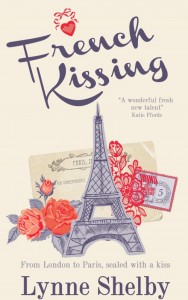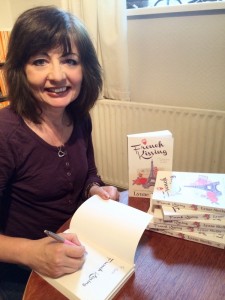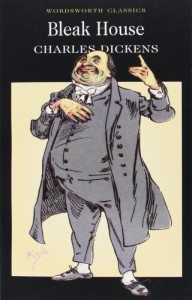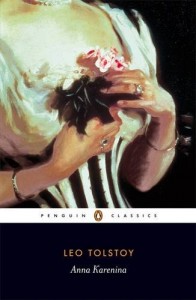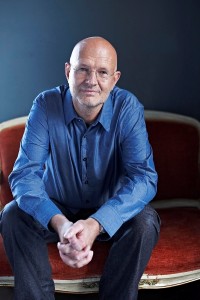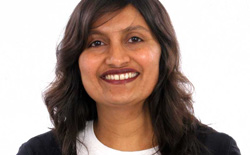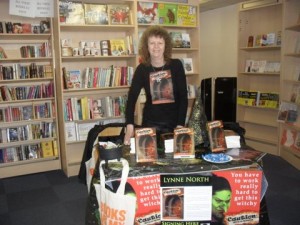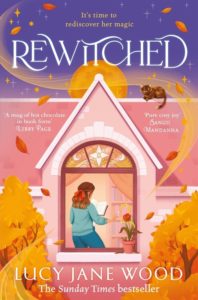A Moment With Talli Roland: My Writing Process
 Starting a new novel is always so exciting. Everything feels shiny and fresh, and you just know it will be the best book you’ve ever written.
Starting a new novel is always so exciting. Everything feels shiny and fresh, and you just know it will be the best book you’ve ever written.
I love that moment, before the inevitable self-doubt sets in. I don’t have any particular rituals when I sit down to write a new book, but I always sketch out the obstacles my characters will face and how I want them to change and grow by the end of the book.
I also think about their backgrounds and their internal conflicts, either as a result of their history or character traits. I often don’t have a picture of my protagonist in my mind, but I do need to ‘know’ them: their fears, their likes and dislikes, and what they want out of life.
I’ve tried both exhaustive planning and ‘pantsing’, and I usually fall somewhere in the middle.
Blog Tour: Amanda Brooke Talks About Her New Novel, The Affair
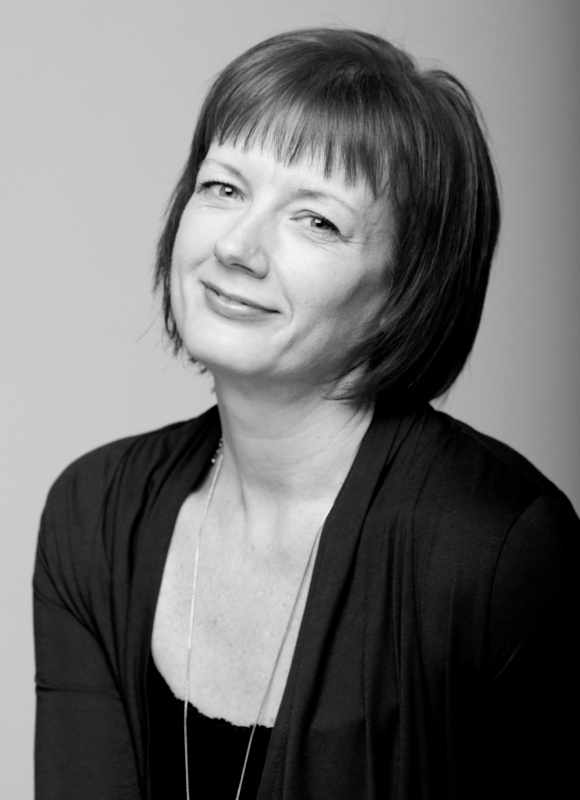 Today, I am welcoming Amanda Brooke and the blog tour for her latest novel, The Affair which was released by Harper on 10th November in electronic form with the paperback release due for 12th January.
Today, I am welcoming Amanda Brooke and the blog tour for her latest novel, The Affair which was released by Harper on 10th November in electronic form with the paperback release due for 12th January.
A shocking story about a fifteen-year-old girl and the man who took advantage of her
“You might as well know from the start, I’m not going to tell on him and I don’t care how much trouble I get in. It’s not like it could get any worse than it already is.
I can’t. Don’t ask me why, I just can’t.”
When Nina finds out that her fifteen-year-old daughter, Scarlett, is pregnant, her world falls apart. Because Scarlet won’t tell anyone who the father is. And Nina is scared that the answer will destroy everything.
As the suspects mount – from Scarlett’s teacher to Nina’s new husband of less than a year – Nina searches for the truth: no matter what the cost.
Hello Amanda. Thank you so much for joining me on Novel Kicks today. Your new book is called The Affair. Can you tell me a little about it and how the idea originated?
Thank you for inviting me on to Novel Kicks, it’s lovely to be here again! The Affair begins with the news that fifteen year old Scarlett is pregnant to a married man. She won’t say who it is, but the two likely candidates are her stepfather and her teacher. The story is told from the point of view of the men’s wives; Scarlett’s mum, Nina and teacher’s wife, Vikki. I also introduce Scarlett’s voice as a narrator, and she describes the early days of her relationship and how she feels when the accusations start to fly. I’m not sure how much I can say about how the idea originated without giving too much away. I had a scene in my head of a schoolgirl watching from the periphery while other people’s lives fell apart. She wasn’t meant to be the focal point of the book, other than perhaps a final reveal, but after long chats with my editor, the premise of the story morphed into something quite different, and it was both a pleasure and a challenge to write.
Can you describe what your typical writing day is like? Any rituals like needing tea or writing in silence?
You’ve asked that question at a very exciting time, because I gave up work this month to write full-time. I’ve spent thirty-one years in local government and for the last five I’ve been juggling two careers, fitting in my writing around the day job. I can tell you what I plan to do, which is to concentrate on my writing in the morning, which allows me to spend the rest of the day thinking about what I’ve written and where I need to take the story next. I’m conscious that working from home will be quite sedentary, so I’ve had my treadmill adapted, with a small desk that fits on top of the handlebars. My first hour of writing will be spent walking and typing so I can wake up my body and brain at the same time. As I’ve said, that’s only the plan so you might need to ask me again in a year’s time to see if I’ve kept to it.
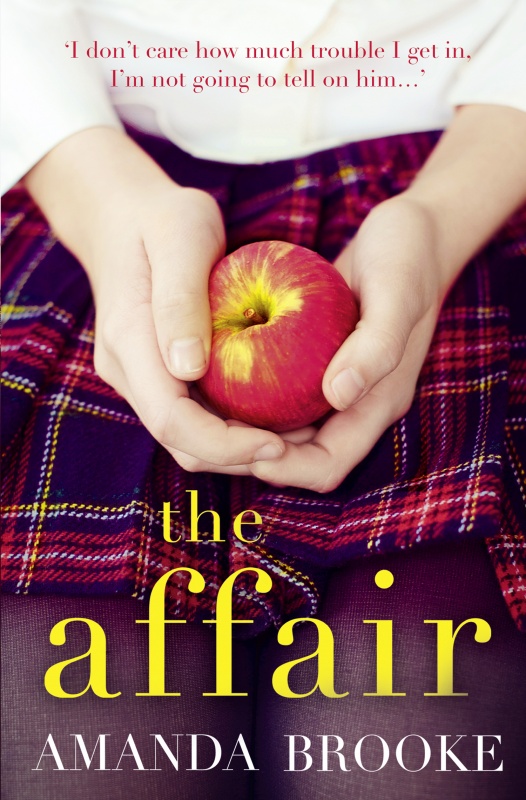 How do you approach writing your novels? Are you much of a planner and need to know your characters well and plot inside out? Do you edit as you go?
How do you approach writing your novels? Are you much of a planner and need to know your characters well and plot inside out? Do you edit as you go?
When I have an idea for a story, I like to mull it over in my head for a while before I commit to paper. The starting point is a two page synopsis, which doesn’t necessarily cover sub-plots or minor characters but should be enough to capture the essence of the story. My next task is to cut up the synopsis into about twelve sections, which in theory will be the chapters and, if nothing else, it gives me some reassurance that I have enough of a story for a full length manuscript. When I’m ready to start writing, I tend to have a very clear idea of the opening and final scenes, but the rest of the book remains relatively fluid. I enjoy getting to know my characters and they’re the ones who fuel my imagination as I go along, creating situations and conflict I never could have imagined from the start. In terms of editing, I see that first draft almost as a test run, it’s only during the subsequent rewrites that I really get to know the story.
Playing FTSE Author, Penelope Jacobs Talks About Balancing Work and Family
 Playing FTSE by Penelope Jacobs was released by Ipso Books in digital format yesterday (24th November)
Playing FTSE by Penelope Jacobs was released by Ipso Books in digital format yesterday (24th November)
When Melanie Collins joins an investment bank as a young graduate, she quickly discovers that femininity is an invaluable asset. But it must not be abused.
She witnesses other women falling victim to office affairs and is determined to be taken seriously. In an industry where abilities are rewarded handsomely, she rises rapidly through the ranks. But her increased profile attracts the attention of a senior colleague and she is ill-equipped to handle his advances.
Balancing a demanding job with a confusing personal life proves difficult and soon their relationship threatens to jeopardise her career. As events move beyond control, her glamorous world becomes tainted by betrayal and bitterness.
One of the themes in the book explores the issues the main character Melanie has with balancing her personal life with her professional one.
The author of Playing FTSE, Penelope Jacobs is joining me today to talk about her thoughts on balancing work and family and why we can’t have it all. Over to you, Penelope.
Achieving a work-life balance is not always possible and certainly requires sacrifices.
Marriage and, more specifically, babies seem to be the tipping point, when life can sometimes spiral out of control. As noted by the National Health Interview Survey, 30-44 year olds report the largest “work-lifestyle imbalance”. During this period, many high-powered career women have simply piled far too much onto their plates. On top of a highly pressurised job, they suddenly have to cope with the demands of small children, a husband and running a household. Not to mention find a little time for themselves.
The Mental Health Foundation states that “the pressure of an increasingly demanding work culture in the UK is perhaps the biggest and most pressing challenge to the mental health of the general population.” In addition, “many more women report unhappiness than men (42% of women compared with 29% of men), which is probably a consequence of competing life roles and more pressure to ‘juggle’.”
Why are we accepting this burden from society? In my opinion, it is not possible to “have it all” and at the same time seamlessly achieve a wonderful work-life balance.
Every woman I know has made some type of sacrifice which, by definition, means they do not have it all. At one extreme, some high-powered women consciously choose not to have children and, at the other, an enormous number leave their brilliant careers permanently to raise a family. In both cases, the costs are high.
Blog Tour: Lesley Downer Talks About Writing Her Novel, The Shogun’s Queen
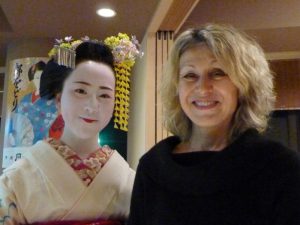
Me in Japan with a maiko (trainee geisha)
A big welcome today to Lesley Downer and the blog tour for her latest novel, The Shogun’s Queen which was released by Bantam Press on 3rd November.
Japan, and the year is 1853. Growing up among the samurai of the Satsuma Clan, in Japan’s deep south, the fiery, beautiful and headstrong Okatsu has – like all the clan’s women – been encouraged to be bold, taught to wield the halberd, and to ride a horse.
But when she is just seventeen, four black ships appear. Bristling with cannon and manned by strangers who to the Japanese eyes are barbarians, their appearance threatens Japan’s very existence. And turns Okatsu’s world upside down.
Today, on the last day of the tour, Lesley has joined me to talk about writing The Shogun’s Queen. Over to you, Lesley…
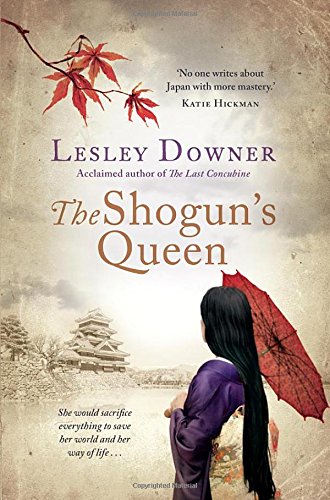 Hello, Laura. Thank you for allowing me to post on your blog today! I greatly appreciate it.
Hello, Laura. Thank you for allowing me to post on your blog today! I greatly appreciate it.
I’ve had a love affair with Japan all my life, and when I decided to move from non-fiction to fiction ten years ago, it was obvious that was where my stories would be set. I’m also mad about research. I love any excuse to go to Japan and I also love scouring old books written by Victorian travellers who were there in the nineteenth century. If I could live my life again it would be in old Japan, the Japan of the great woodblock print artists Hokusai and Hiroshige – and a reasonable second best is reading about it and being there in my mind and taking my readers there as I write about it.
Somehow – I forget how – I came across the Women’s Palace, a sort of harem where three thousand women lived and only one man, the shogun (the military ruler of Japan), could enter. To me the most surprising thing was that I’d spent so long in Japan and read so much about it yet in all those years hadn’t come across the Women’s Palace before. I decided to set my first novel there and so The Last Concubine was born. There was literally nothing in English about the palace. I had to struggle through a book written in Victorian-era Japanese with the help of a Japanese friend. My story took place at the very end of the era of the shoguns and my heroine fled the palace early on in the book.
I went on to write two more novels following on in time after the events of The Last Concubine.
Somewhere along the way I heard of Atsu’s heart-rending story and couldn’t get it out of my mind. It haunted me. Telling her story would mean going back to the Women’s Palace and I’d been feeling for a long time that I hadn’t finished with it – or rather it hadn’t finished with me.
Author Interview: Guy Mankowski Talks About His New Novel, An Honest Deceit
 Guy Mankowski wrote his first novel, The Intimates when he was 21. His other novels include the fantastic Letters From Yelena and How I Left The National Grid. His new novel, An Honest Deceit was released by Urbane Publications on 20th October.
Guy Mankowski wrote his first novel, The Intimates when he was 21. His other novels include the fantastic Letters From Yelena and How I Left The National Grid. His new novel, An Honest Deceit was released by Urbane Publications on 20th October.
When Ben and Juliette’s young daughter dies in a tragic accident on a school trip, they begin searching for answers. But will they ever know the truth? What was the role of the teacher on the trip – and are the rumours about his past true? As Ben and Juliette search for the truth and the pressure rises, their own secrets and motivations are revealed…. An Honest Deceit is an intelligent and gripping contemporary psychological thriller that questions not just the motives of others, but the real reasons for discovering the truth.
Hi Guy, welcome back to Novel Kicks. Can you tell me a bit about your new novel, An Honest Deceit? What inspired you to write it?
Hi Laura, thanks for having me. An Honest Deceit is inspired in the main by an anger at the way our institutions often treat individuals who ask them uncomfortable questions. There are hundreds of people in this country who are sitting pretty in extremely well-paid jobs that they’ve only kept hold of because they’ve used the power institutions offer them to manipulate the truth. They use this power to hurt others and look after themselves. This book looks at the impact of that through the plot of a man investigating how his daughter was killed on a school trip.
What’s your typical writing day like? How has your writing approach changed since writing your first novel?
For my first novel, The Intimates, I edited the manuscript about three times. For my second novel, about eight times. For my third about 35 times and I couldn’t begin to count how many times I edited An Honest Deceit. Every word has been changed at least once so is it even the same novel? If someone looked at a draft I had of a novel called ‘Marine’, in 2011, I think they would barely recognise that it would become ‘An Honest Deceit.’ So my typical writing day has changed in that it is much more about editing and rarely about just writing.
What are the challenges of writing a psychological thriller?
It’s hard to know how deep you should go into a characters psyche because you don’t want to lose the narrative too much. The way I ended up handling it was to go very deep into their darkest thoughts and feelings and then in later drafts ensure that there were questions the reader had at every point to keep them going. It is hard to resolving everything, within your made-up world, so it doesn’t all seem too pat.
A Moment With Laura Briggs: Self Publishing Vs. Traditional Publishing
 I’m happy to be welcoming a fellow Laura to Novel Kicks today. Author, Laura Briggs talks about Self Publishing vs. Traditional Publishing and the pros and cons of each. Over to you, Laura.
I’m happy to be welcoming a fellow Laura to Novel Kicks today. Author, Laura Briggs talks about Self Publishing vs. Traditional Publishing and the pros and cons of each. Over to you, Laura.
First of all, thanks to Laura for inviting me to appear on Novel Kicks with a post on self-publishing vs. traditional publishing. I’ve learned a little about both in recent years and hope my experiences may prove useful to some of you reading this.
Let me start by saying that my publisher, Pelican Book Group, is nothing less than excellent. I love working with them and plan to submit more manuscripts to their company in the future. I also love self-publishing and am grateful to have the opportunity for both.
Now—let’s get to some pros and cons on publishing!
The Pros of Traditional Publishing:
•Professional Editing: This is an obvious one, but I can’t stress it enough. Freelance editors cost a few hundred on average, so yes, professional editing gives traditional publishing an edge.
•Professional Cover Design: Another obvious one, I know, but important. Not everyone has the software, or the know-how to make a good cover, even with so many high quality images available via sites like Dreamstime. The cover often serves as your book’s first impression, so it needs to be good.
•Professional Marketing: Let’s face it—marketing is tough. And hugely competitive. Book review bloggers are swamped with requests and even buying ad space from a popular service like Bookbub is difficult to achieve. Some publishing companies have better methods of getting your book out there. Some don’t. It depends on the publisher, and of course, even authors with a traditional publisher must still do some of their own marketing.
•It Has More Options Than Before: There are many small and up-and-coming publishers who will take unagented submissions from writers these days. There are even divisions of bigger publishing houses, like HarperCollins, I believe, that welcome unagented submissions. They may not pay author advances like big companies do, but some are quite generous on the royalties.
Author Interview: Vicki Wakefield Talks About Her Novel, Inbetween Days
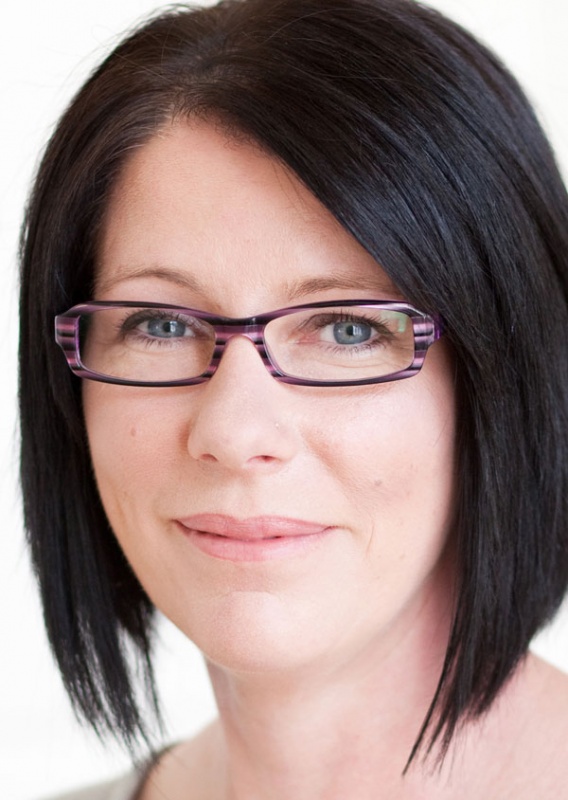 I’m pleased to be welcoming Vicki Wakefield to Novel Kicks today. Vicki is the author of the YA novel, Inbetween Days which was released by Text Publishing on 26th August.
I’m pleased to be welcoming Vicki Wakefield to Novel Kicks today. Vicki is the author of the YA novel, Inbetween Days which was released by Text Publishing on 26th August.
Jacklin Bates has life figured out – dropped out of school, moved in with her runaway sister, in love with an older boy. But why does she have a sinking feeling that she still needs her mum? Perhaps because she’s stuck in Mobius – a dying town with the macabre suicide forest its only attraction – stuck working in the roadhouse and babysitting her boss’s demented father.
Vicki, thank you for joining me today. Can you tell me about your typical writing day?
There are no typical days. I write when I feel like it, or when a deadline forces me knuckle down. It’s not that I don’t love writing, it’s just that I focus best when my slate is clean. I tend to deal with family, housework, bills, pets and life first, and then I breathe out. I can be epically productive or utterly paralysed. There’s no middle ground.
Do you have any writing rituals (coffee, silence?)
I’m terribly provincial. I can’t do cities, hotel rooms, libraries or cafes (I wish I could, but I either get distracted or lonely). I like to be outside; I like my dog under my feet. I prefer to write at night when everyone else is asleep, and I need tea, wine, chocolate or biscuits (not necessarily at the same time, but I’ve been known to go on a bender). I keep only one working file, so any changes are lost forever (I’m told this is the equivalent of base-jumping, but to me it’s a superstition, like wearing your lucky stinky socks for every game).
Do you edit as you go and plan much prior to beginning a book?
I’m always thinking about a new book long before I finish working on my current one, so the planning can take place years before I write a single word. I keep notebooks filled with random ideas and drawings to help me get to know the world and the characters, and I’ll usually have my opening paragraph perfected before I open a new document (the blank page scares me). Planning in advance helps me to decide whether a story has legs, and drawing helps me to refine my characters before I begin. That said, I’m not a plotter. I trust that the story will take me where it needs to go. I do edit as I write the first draft (against most advice on writing first drafts). It’s my way of feeling out the story. My ideas change so often and so unexpectedly that I worry the novel would be unfixable if I ignored my instincts and tried to write through.
Author Interview: Emma Bennet
 Emma Bennet is the author of I Need A Hero, His Secret Daughter and Snowed in for her Wedding. Emma joins me today to chat about writing, planning her novels and her dinner party guests.
Emma Bennet is the author of I Need A Hero, His Secret Daughter and Snowed in for her Wedding. Emma joins me today to chat about writing, planning her novels and her dinner party guests.
Hi Emma, thank you for joining me. Do you have a favourite word?
I have several: pudding, serendipity and natty stand out as particularly wonderful to say. Actually, I managed to get ‘natty’ into my latest manuscript, a great moment!
How much planning do you do before beginning a book? What elements need to be in place?
I use an A4 notebook and write a basic outline over a page. I then expand on this over about three pages, and write short character profiles for my hero and heroine. I add to and refer to these sheets regularly! Once these are in place, I’m off!
Which novel would you like to live in for a day and why?
I think it’s got to be ‘Pride and Prejudice’: I’d love to chat with Lizzy, advise her mum on her nerves and dance with Mr Darcy!
Out of all the books you’ve read, which three have stayed with you?
It tends to be children’s books which stay with me the most. I absolutely love being able to share my favourites with my children. The top three would probably be Enid Blyton’s The Enchanted Wood, Noel Streatfeild’s Ballet Shoes and Catherine Cookson’s Nancy Nutall and the Mongrel (which never fails to make me cry!).
Author Interview: Lesley Thomson Talks About The House With No Rooms
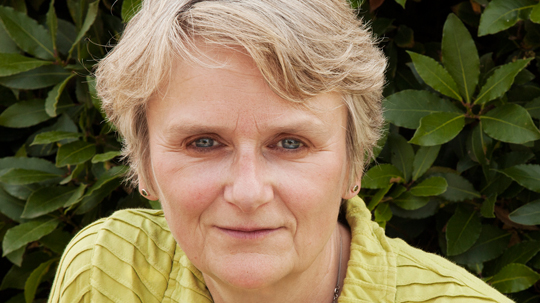
Lesley Thomson
I’m pleased to be welcoming author Lesley Thomson to Novel Kicks today. Hi Lesley. Could you tell me a little about your typical writing day?
Hi Laura, great to be here.
My day starts at 6.45am when I walk the dog. In summer this is a lovely part of the day, with the sun shining on the ruins of the Priory behind our house and the grass lush and green. I know the other walkers who are out at that time and feel lucky to have such interesting conversations before breakfast. In the winter in the wet and dark, togged in waterproofs from head to foot with a torch strapped to my forehead, it’s more of an expedition.
I start work at 8.30 and break for coffee at 11am. I work until 1pm. If it’s a first draft then – after lunch and a longer walk with my dog – I do research. This is reading books and articles and taking notes. Perhaps setting up interviews. If I’m further on in the novel, I’ll continue redrafting until about 5pm.
Can you tell me a little about your book, The House with no Rooms and how the idea originated?
The House with no Rooms is a murder story set in Kew Gardens in the hot summer of 1976 and in 2014. Jack and Stella follow a series of clues to uncover a terrible secret that is forty year old.
I visited the Marianne North gallery in Kew Gardens. A 19th Century botanical artist, North painted plants and flowers on her solo expeditions around the world. There are 833 numbered pictures hanging in what looks like a house. My character Jack sees numbers as signs that dictate his actions and hold clues he must decipher. The story features the Palm House, the Queen’s Beasts and the Herbarium that stores thousands of dried specimens collected over two centuries. They are called ‘dead materials’. Add to this that the botanist’s chief tool of trade is the scalpel and I realised that the Botanical Gardens was the perfect place to set a scary crime novel.
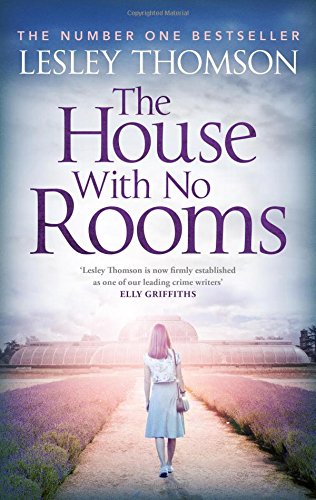
Head of Zeus, April 2016
Do you have any writing rituals (needing coffee before you begin? Writing in silence etc.)
Yes, as I mentioned earlier, I have coffee at 11am. I drink out of a particular mug that I only use for work. I take the dog for walks at about the same time every day. While I work, I play Radio 3 although I like silence too. All this is less about superstition, I have found that a combination of ritual and routine gets me get into story and keeps me writing.
If you were only allowed to own three books, which three would you pick?
These would keep me going. I would need nothing else,
Our Mutual Friend by Charles Dickens
Excellent Women by Barbara Pym
The Moonstone by Wilkie Collins.
Is there a fictional character you’d like to meet and why?
There are two. As an adult, I’d like an introduction to Sergeant Cuff in The Moonstone. He has a quiet ego, he knows he’s good at his work, but is prepared to be wrong. But of course he isn’t. He’s professional, honest, unflurried and gives people careful attention. He has a great sense of priority. What matters most to him is to grow roses. I’d love to have tea with him in the garden in Dorking that he moved to after he retired. I’m sure I’d come away wiser.
As a child, I wanted to meet Lucy in The Lion, The Witch and the Wardrobe. She is passionate, honest and brave. Actually I’d still like to meet her.
What advice do you have for someone who is thinking of or in the processes of writing a book?
A writer is privileged to live in more than one world, their fictional world and the ‘real’ one. Sometimes I find the former more real. Two bits of advice, if you’re writing a novel, keep going until the end. Then you’ve got something to work with. If you’re contemplating writing, stop contemplating and start! Never wait for the muse to strike because it tends to strike when words are already on the page, not when the page is blank. And as I said earlier, you might see if it helps you to establish a routine. Above all, keep going.
How do you approach the writing process? Do you plan much, edit as you go?
I have the idea and write a synopsis. Then I plan out the novel chapter by chapter. I consider what research will be needed. This might be interviewing experts in their field. For The House With No Rooms I talked to botanists, a botanical illustrator and the ex Met Detective Superintendent and District line driver who have helped me with the Detective’s Daughter series. I walk the places in my novels. The House with no Rooms demanded lots of visits to Kew Gardens, poor me… I start the research after I’m half way through a draft when I know what questions to ask.
I write a first draft, ploughing on without editing even if I’m not happy with it. Then I do another draft, editing, refining and rearranging scenes to ensure they work. By the time the novel is published I have completed at least six drafts.
What’s your favourite word and why?
Contentment. It is suggests satisfaction with one’s life and in the moment. I imagine I would feel contentment sipping tea in Sergeant Cuff’s country garden with the scent of roses on the summer air.
 More about Lesley:
More about Lesley:
Lesley Thomson grew up in London. Her first crime novel A Kind of Vanishing won The People’s Book Prize in 2010. The Detective’s Daughter is a number one bestseller and Sainsbury’s ebook for 2014. Ghost Girl, the second in the The Detective’s Daughter series (2014) went to number one in Sainsbury’s e-chart and is another bestseller. The Detective’s Secret was published in 2015. The Runaway, an eBook short about Stella Darnell (the detective’s daughter) came out in July 2015 and the fourth in the series, The House with No Rooms in 2016.
For more information about Lesley, visit http://lesleythomson.co.uk
Blog Tour: Lying in Wait by Liz Nugent – Liz’s Approach to Writing
 I am pleased to be welcoming Liz Nugent to Novel Kicks today and the blog tour for her new book, Lying in Wait.
I am pleased to be welcoming Liz Nugent to Novel Kicks today and the blog tour for her new book, Lying in Wait.
‘My husband did not mean to kill Annie Doyle, but the lying tramp deserved it.’
Lydia Fitzsimons lives in the perfect house with her adoring husband and beloved son. There is just one thing Lydia yearns for to make her perfect life complete, though the last thing she expects is that pursuing it will lead to murder. However, needs must – because nothing can stop this mother from getting what she wants …
I’ve reviewed the book below but first, Liz chats to us about her approach to writing psychological thrillers. Over to you, Liz….
I have always been interested in the psychology of killers. What makes them tick, how they deal with the horror of what they have done. Two books which were hugely influential were John Banville’s The Book of Evidence and Sebastian Faulks’ Engleby. Both were first person narratives about deeply flawed men.
I used to work on a TV soap opera and one day in a story meeting, we were discussing a character who had just killed somebody and I insisted that he must be extremely distressed and I said ‘You know the way when you dream you’ve murdered somebody and you wake up in the horrors?’ Everyone just stared at me and that was when I realised that I was the only one who had those nightmares. I kill people in my sleep!

In real life, I am a pacifist and actively avoid confrontation, so I’m not sure from where this murderous side of my psyche comes, but I hope it has given me an edge when writing from the point of view of murderers!
Interview: Todd Lawton, Co-creator of Mobile Book App Litsy

Todd Lawton (left) & Jeff Leblanc (right) – Co-founders of Out of Print and creators of Litsy
Todd Lawton, along with best friend, Jeff Leblanc is the co-founder of Out of Print which has been selling literary themed merchandise to support reading initiatives for the past six years and has donated more than 1.7 million books to communities in need.
Recently, the pair launched their new app, Litsy (which is a social community app for readers.) I’ve been talking a look at the app and it’s brilliant. On it you can discuss books with other readers, review books and you can even add quotes from your favourite books. Todd has joined me today to talk about Litsy. Welcome Todd, can you tell me a little about Litsy, how it came about and how it works?
Before Litsy, I helped create Out of Print—a literary lifestyle brand that sells literary apparel and accessories. We started Out of Print because we felt there was bookish conversation to be had outside the solitude of reading. Why not wear your favorite titles and authors for everyone to see? It’s invites a special kind of dialogue. Another inspiration for us were bookstore shelf talkers, the “staff picks” signs with personal recommendations and anecdotes. We wanted to extend these conversations; we wanted more people, from anywhere in the world, to join the conversation. That’s when we created Litsy. On Litsy, users can share any book moment on the go, and other readers, not algorithms, are there to engage and recommend your next favorite titles.
It’s been downloaded in over 119 countries. In your opinion, what is it about that is making it so popular do you think?
I think users appreciate having one central place for all things book related. Rather than going to one platform to review, and then another to blurb, and then another place to write down a quote, and then another to post a picture, Litsy users can organize their reading stacks, post, and engage in the same place. There isn’t the noise of other content competing with the books—it’s only books.
Author Interview: Jane Green

Author, Jane Green
Eeeeeek! I am so excited to be welcoming Jane Green to Novel Kicks especially as it is publication day for her new novel. Hello Jane. Thank you so much for joining me today. Can you tell me a bit about your latest novel, Falling and how has your writing routine changed over the time you’ve been writing?
Falling is my first big, epic love story in a while. I wanted to narrow it down to two people, and draw from my own story, in that I met my husband three days after my first marriage ended, by renting his beach cottage. The story goes off in a very different direction, but I loved writing about these two people who I grew enormously fond of. My routine is much the same in that I still leave my house to write, and am still finished by lunchtime, but entirely different in that the landscape of the world has changed, and hours a day are spent maintaining a presence and building a following on social media.
Do you plan much prior to beginning and do you edit as you go?
I plan my characters, and sometimes my story, although I prefer to have a rough idea of the arc of the story and let the characters then tell it. I do a cursory read through every day of what was written the day before, and might make minor tweaks, but I save the major edits until I have finished.
Which fictional character would you like to hang out with for a while and what would you do?
Right now I would quite like to hang out with Claudette from This Must Be the Place by Maggie O’Farrell because I am immersed in her world.
Author Interview: Seré Prince Halverson
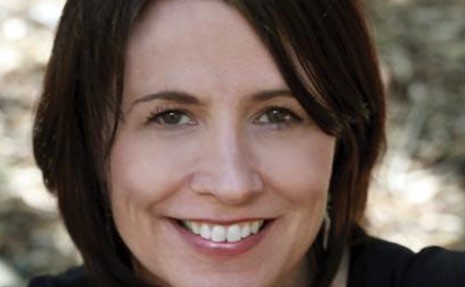 Seré Prince Halverson is the author of All The Winters After which was released by Landmark Source on 16th February . I am pleased to be welcoming her to Novel Kicks today. Hello Seré, thank you so much for joining us. Which moment in history would you like to return to and witness?
Seré Prince Halverson is the author of All The Winters After which was released by Landmark Source on 16th February . I am pleased to be welcoming her to Novel Kicks today. Hello Seré, thank you so much for joining us. Which moment in history would you like to return to and witness?
It would be pretty cool to bounce around with Neil Armstrong on the moon.
What’s your typical writing day like? Do you have any writing rituals?
I’m usually up early. I make strong coffee with frothy almond milk. I write in my journal to clear my mind and warm up, then eventually I’m writing the novel and move to the computer. When I get stuck, I go back to the notebook and scratch around or take a walk or read. Or I have a snack. Snacks help.
What is your favourite word and why?
Ostranenie. And before you think I have a grand vocabulary, I’ll admit that recently a list of fantastic words popped into my inbox, and this was one of my favorites. I liked them all, but you asked for one so I won’t be too obnoxious and throw them all around. It means: encouraging people to see common things as strange, wild, or unfamiliar; defamiliarizing what is known in order to know it differently or more deeply. Isn’t that a great word? Check out the whole list: http://www.stumbleupon.com.
Out of all the books you’ve read, which three have impacted you most?
I could answer this question differently on any given day. Too many. So I’ll tell you the first books that had a big impact on me.
When I was nine years old, I read three very different books that changed the way I viewed the world: The Diary of Anne Frank, Anne of Green Gables, and Island of the Blue Dolphins. It’s strange, even today, I can see their influence on The House of Frozen Dreams—hiding, isolation, love of place and family, and longing for home.
Oh, and I should mention Charlotte’s Web. I still carry spiders out of the house instead of squashing them.
Blog Tour: Whyte Lies by KC Acton – Writing Process and Review
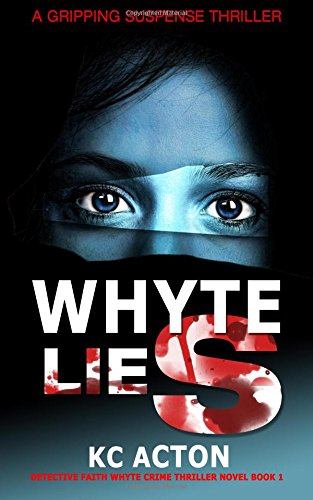
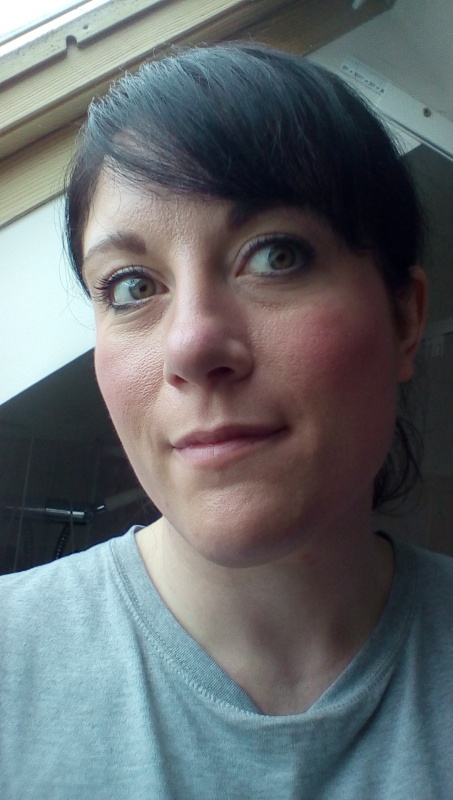 I’m pleased to be welcoming KC Acton to Novel Kicks today and the blog tour for her novel, Whyte Lies. This is the first novel in the Whyte Lies series and introduces us to DCI Faith Whyte.
I’m pleased to be welcoming KC Acton to Novel Kicks today and the blog tour for her novel, Whyte Lies. This is the first novel in the Whyte Lies series and introduces us to DCI Faith Whyte.
About Whyte Lies:
The perfect family? Or the perfect lie? Gunshots ring out on the sweltering summer air, shattering the peaceful silence. The stench of exhaust fumes and burning rubber fill the humid breeze as the car’s wheels spin against the embankment.
In front of the car, a girl lies hunched, her blonde hair stained red. Her light summer dress is torn. She’s missing a sandal. Part of her wishes she were dead. Inside the car, the girl’s father is slumped over the steering wheel. Behind him, the girl’s mother lies motionless.
The forest is eerily quiet, silenced by the violence, while the shadows of the trees protect the carnage. Crime and justice are Detective Faith Whyte’s business. Murder is her speciality. Faith thinks she has seen it all, until she investigates the brutal killing of a family in Killarney National Park. However, the killer is closer than she thinks, and Faith must open her eyes before someone else becomes the victim of a dark and deadly mind.
Faith has spent a lifetime running, but the past is about to catch up with her. Now, she must surrender to the present and trust her instincts more than ever. What happens when the present collides with the secrets of the past?
I’ve reviewed the book below but first, KC Acton talks us through her writing process and what she thinks makes a good thriller…
I’ve just published my first book, Whyte Lies, and am almost finished the first draft of my second book, Whyte Heat, so I suppose I’m still experimenting with my writing process. I try to focus on getting a certain number of words written per day, for me that’s usually around 2,000 words. I tend to write better in the late morning because it takes a while for my brain to get going. No matter how much sleep I get, I usually wake up feeling like I’ve been smacked in the face with a frying pain. Needless to say, I am not a morning person! I usually can’t manage much more than a few muttered words until I’ve downed my second coffee–the stronger, the better.
Author Interview: Sarah-Jane Stratford

Sarah-Jane Stratford
I’m excited to be welcoming the wonderful Sarah-Jane Stratford to the blog today. Her novel, Radio Girls was released on 14th June by Allison and Busby. Hi Sarah-Jane. Thank you so much for joining me. Can you tell me a little about your typical writing day and do you have any writing rituals (coffee before you begin, writing in silence etc.)
Hi, I’m so pleased to be here! I’m a member of Paragraph Workspace for Writers in New York. For a monthly fee, we get 24/7 access to a quiet writing space – about 60 carrels, so you just pick an empty desk you like, plug in, and get to work. I have to settle in first – get my tumbler of hot green tea, no matter the weather; read a bit of the newspaper; deal with emails – before my brain can be considered more or less functional. Then it’s on to the second tumbler and work. On a good day, I like to get about 1500 words written before lunch. The members of Paragraph are all pretty terrific and I usually have lunch with one or two friends, where we either talk about writing or the real world for a little while – either way, I’m raring to get back to it. Then I try to get another 1500 words in by evening. Then I collapse. Usually I make it home before that happens, though there is a sofa at Paragraph if need be.
How do you approach the writing process? Do you do much planning and do you edit as you go etc?
First comes research, always. I just love that process of settling down in a library to read and study and wander into a time and place. Then I start to think about the characters in that time and place, and from there, an outline develops. I like to draw up detailed, meticulous plans, knowing full well that about half of them are going to be abandoned once I’m actually in the thick of it. The characters tend to develop their own ideas about what’s going to happen as the story goes on.
It’s never a good idea to edit as you write, but of course I do it all the time. And then I tell myself not to and keep doing it anyway. In the end, it more or less works out, but I know the best route for me is to just write, get that rotten first draft, and then tear the whole thing apart and start over.
Your book is called Radio Girls. Can you tell me about it and how the idea originated?
Radio Girls mixes real people and fictional characters to tell the story of the women behind the scenes in the early years of the BBC.
It all started with Hilda Matheson, the real-life first Director of Talks at the BBC. I came across her name when researching and the more I read about her, the more enthralled I was. I knew I had to bring her story and this world to life. The 1920s and the beginnings of the BBC are such an exciting time – it’s really the invention of a whole new media, and building something from the ground up. I was so thrilled every day, trying to capture that, get inside that world. I realized early on that the book would work better if Hilda wasn’t the protagonist – mostly because I adored her too much to allow her many flaws – but instead created a character, Maisie, who enters the BBC as a young secretary and gradually discovers her potential as she learns the ropes. Essentially, she learns to use her voice, helped by having Hilda as a mentor.
A Moment With Chris Whitaker: Five Books I Wish I’d Written
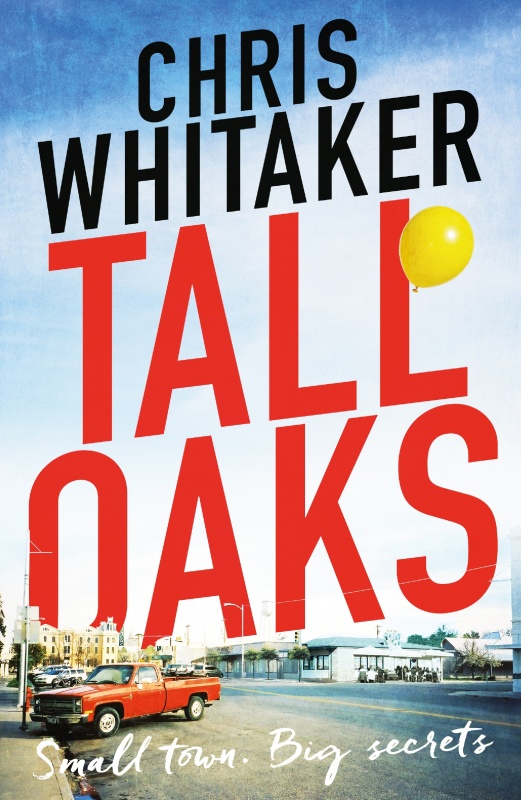 I’m happy to be welcoming Chris Whitaker to Novel Kicks today. His debut novel, Tall Oaks was released by twenty7 in April of this year with the paperback edition due to be released in September.
I’m happy to be welcoming Chris Whitaker to Novel Kicks today. His debut novel, Tall Oaks was released by twenty7 in April of this year with the paperback edition due to be released in September.
For fans of Twin Peaks and The Truth about the Harry Quebert Affair, this brilliant debut is dark yet hilarious, suspenseful and sad. Everyone has a secret in Tall Oaks . .
When three-year-old Harry goes missing, the whole of America turns its attention to one small town. Everyone is eager to help. Everyone is a suspect.
Desperate mother Jess, whose grief is driving her to extreme measures. Newcomer Jared, with an easy charm and a string of broken hearts in his wake. Photographer Jerry, who’s determined to break away from his controlling mother once and for all. And, investigating them all, a police chief with a hidden obsession of his own . . .
Missing persons, secret identities and dangerous lies abound in a town as idiosyncratic as its inhabitants.
Chris joins us today to chat about the five books he wishes he’d written. Over to you, Chris…
The Body by Stephen King (part of the Different Seasons collection)
Probably better known by the name of the movie it inspired, Stand By Me, The Body is a coming-of-age masterpiece set in the town of Castle Rock, Maine in the summer of 1960. It’s told in the first person and narrated by Gordie Lachance, as he and his three friends set out to find a dead body located 40 miles away. It’s funny, sad and poignant. It was definitely an inspiration when it came to capturing the issues of bullying, friendship, and fitting in, that the teen characters of Manny, Abe, and Furat face in Tall Oaks.
Author Interview: Lauren Westwood
 Lauren Westwood is the author of Finding Home and I’m pleased to be welcoming her to Novel Kicks. Hi Lauren, thank you so much for joining me today. Can you tell me about your debut novel, Finding Home and how the idea originated?
Lauren Westwood is the author of Finding Home and I’m pleased to be welcoming her to Novel Kicks. Hi Lauren, thank you so much for joining me today. Can you tell me about your debut novel, Finding Home and how the idea originated?
Thank you for having me and Finding Home on your blog today!
The idea for the novel started over six years ago when my partner and I were looking to move out of London when our daughter was born. We both love old houses, and were looking for ‘the right’ house within commuting distance of our workplaces. Unfortunately, our search area kept expanding and pretty soon, we were looking in a huge area that had estate agents scratching their heads. Let’s just say, I encountered many during this process! When we did eventually find ‘the right’ house – three of them, in fact – and put in offers, we ended up getting gazumped by other buyers. It took several years before we finally got lucky. Overall, it was quite an emotional process – sometimes stressful, sometimes exciting – and I sometimes felt like I was living in a novel. Based on my own experiences, I could see how a young, somewhat quirky, romantic like Amy Wood could find the process captivating – and fall in love with a crumbling old house like Rosemont Hall.
.
How do you approach the process of writing – do you plan much? Edit as you go?
I normally have the basic idea in my head and also some plot milestones – so I know point A and point B in advance, but not necessarily how I’m going to get there. In general, I try to write the first draft through without going back too much. For me, that makes the ideas flow more freely, and I’m often surprised how a scene ends up. However, I am trying to be a little more disciplined with my next novel, and doing more plotting in advance. It has more of a mystery focus, and that requires more early thought on pacing, clues, and structure.
Can you tell me a little about your typical writing day and do you have any rituals (writing in a particular place, must have a hot drink, write in silence?)
I wish I had a typical day! When I first started writing almost ten years ago, I did a lot of writing in a notebook during my commute. Back then I had more time, and longer quiet moments to write. Nowadays, life is pretty full-on with three children, working as a lawyer, writing, and doing publicity. I rarely have a quiet moment, so I’ve learned to work more efficiently, and with more distractions.
My best writing time is usually mornings. I get up very early, put the coffee maker on, and type away in the kitchen before the children get up and it’s time for work and the school run. When I’m working on something new, I try to do at least 500-1000 words a day. If I have more time, I try to do some editing on something else. My favourite part is ‘getting in the zone’ and putting the words down for the first time. I’m less keen on the editing part!
Blog Tour: The Magic Touch by Kelly Florentia
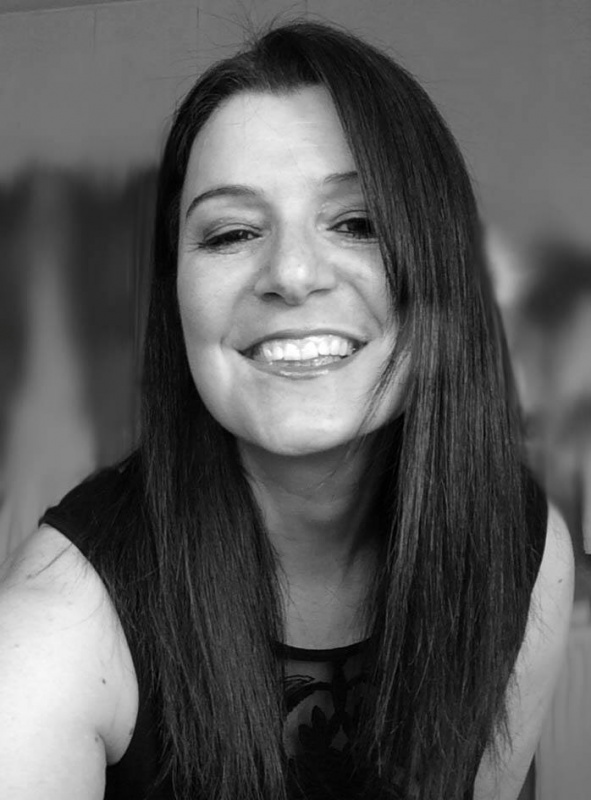 I am very pleased to be welcoming author, Kelly Florentia to Novel Kicks today. I’ve reviewed her debut novel, The Magic Touch below but first, I get to chat to Kelly about her novel, her writing process and Eric Bana.
I am very pleased to be welcoming author, Kelly Florentia to Novel Kicks today. I’ve reviewed her debut novel, The Magic Touch below but first, I get to chat to Kelly about her novel, her writing process and Eric Bana.
Hi Kelly. Congratulations on the release of your new book, The Magic Touch, Can you tell me a little about it and how the idea originated?
Hi Laura, thanks for your good wishes, and thanks so much for having me on your blog today. The Magic Touch is my debut novel, so it’s an incredibly exciting time for me. It’s a paranormal romance about a 39-year-old divorcee who seems to have slipped into complacency with her partner of five years. Perfectly normal, she thinks, for couples who’ve been together for several years. But then when she stumbles across a flirtatious text message on her boyfriend’s mobile phone from a female colleague, sparks fly. Emma’s sole aim is to get to the bottom of Harry’s secret affair, which she does with the help of friends, her ninety-three-year-old neighbour, and a little intervention from a psychic App, The Magic Touch.
The idea for the story came from my fascination with mobile phone applications. There seems to be an app for everything these days. My phone is bursting with them – from social media apps to photography apps. I even plan my week around a weather app (I’ve got three, by the way). Then I thought, what if there was an app that could predict your future with alarming accuracy, what then? And The Magic Touch was born. I enjoy writing about everyday issues that people can resonate with, to a point. So, I based the novel on a couple who suddenly find, after five years together, that they want different things in life, and I went with it.
Can you tell me about what your typical writing day is like?
On a writing day, I’ll grab a coffee, fire up my computer and start tapping away at my keyboard. Of course, this is punctuated by a thousand tweets, a hundred Facebook posts and constantly checking my email.
How do you approach the process – do you plan much, edit as you go? Any rituals?
I’m a planner. I can’t write the story unless I know what’s going to happen, and I have to be incredibly excited about the ending before I can even begin. I get the first draft down quite quickly and then I start editing. Probably three drafts in total. I don’t have any rituals, I’m quite boring, apart from necking copious cups of coffee, but that’s normal, right?
A Moment With… Lynne Shelby
I am very pleased to be welcoming Lynne to Novel Kicks today. She talks to me about her writing process….
I never know when I’m going to get an idea for a novel. I love travelling, and very often, when I’m exploring a foreign city I’ve not visited before, I think of a story that could take place in that locale, but it could be a photograph, a piece of music or an overheard conversation that suddenly makes me want to open my laptop and start writing. The idea for my debut novel, ‘French Kissing,’ grew out of a phone conversation I overheard when travelling back from Paris to London with my family on the Eurostar. A young Frenchman sitting across the aisle spent the entire journey calling his English friends on his mobile, telling them that he was coming to London, and suggesting that they meet up. Unfortunately, none of his friends seemed to want to see him, which made me feel very sorry for him – and gave me the scenario for ‘French Kissing,’ in which a Frenchman coming to work in London is made very welcome by his English friend – who happens to be a girl…
When I start writing a story, I know the beginning and the ending, but have only a vague notion of what is going to take place in between. I jot down a few notes, just the outline of the plot, and then begin typing, throwing my hero and heroine together, and seeing what happens as they interact. I already know a lot about my hero and heroine at this point, and I note their age, appearance, etc on index cards, adding more details that as I go along. There does seem to be a moment when the characters I’ve created take over and start telling their own story! Sometimes I realise that the story arc I have planned for them just doesn’t work with the person they have become on the page, and I have to change it. A minor character in ‘French Kissing’ ended up in a romantic sub-plot, although I had no idea that this was going to happen when I first put her in the book – she was just supposed to be my heroine’s confidante.
Author Interview: Alison May
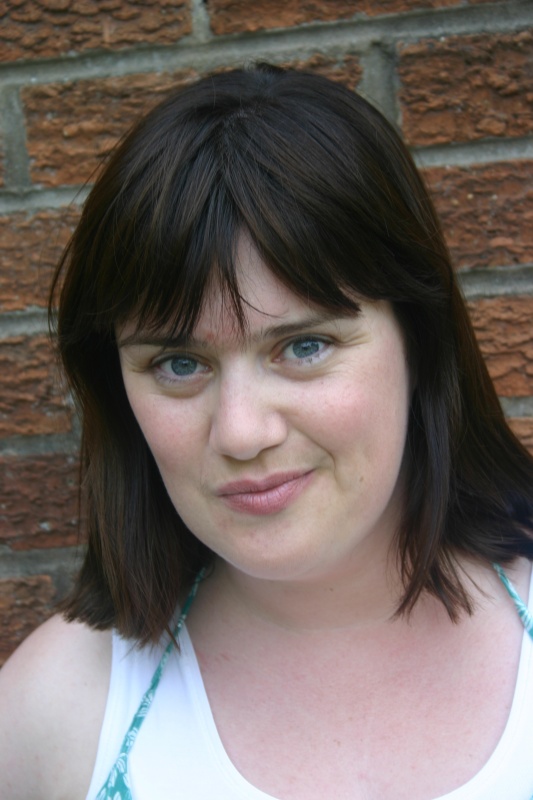 I’m very pleased to be welcoming author, Alison May to Novel Kicks today. Hello Alison. Thank you for joining me.. For people who are new to your books, can you tell me a little about your novels and writing style?
I’m very pleased to be welcoming author, Alison May to Novel Kicks today. Hello Alison. Thank you for joining me.. For people who are new to your books, can you tell me a little about your novels and writing style?
I write romantic comedies. When I’m being flippant I say I write books about twenty and thirty-somethings getting drunk and making bad life choices. When I’m not being flippant I try to make it sound more serious and important than that, but really it’s mainly drinking and bad decisions.
What is your typical writing day like?
Morning: Get up. Wonder about putting proper clothes on. Eat toast in pyjamas. Accidentally get sucked into watching episodes of The Gilmore Girls I’ve seen about eighteen times before. Get cross with self and actually turn laptop on. Answer email and look at social media (which is totally definitely work and not procrastinating at all). Realise it’s lunchtime and resolve to definitely do better in the afternoon.
Afternoon: Much like the morning, but hopefully ending up with a phase of frantic writing of words which will almost certainly turn out to be terrible.
Where do you normally like to write? Do you normally like to write in silence or surrounded by noise?
I mostly write at home in my tiny purple office, but I try to mix things up, so I’ll turn music on and off over the course of the day, or I’ll move with my laptop and write in bed or on the dining table for a bit. I do that because I’m a huge procrastinator, and I find that changing the environment can trick my brain out of faffing and get it to refocus on whatever it’s supposed to be doing. For the same reason I sometimes drag myself to the local library (The Hive in Worcester – it’s very big and very gold). I usually go to the library if I’ve got one big task that I’m procrastinating at home, and set myself a rule about when I’m allowed to leave the library eg. ‘You can’t go home until you’ve drafted that short story’ or ‘You can’t go home until you’ve finished reading that draft.’
What is your process like in regard to planning, daily word count and editing?
It’s different for every book to be honest. For my first novel I just wrote 2000 words a day with no planning at all until I had a first draft. It was an awful first draft, but it had the right number of words at least. Now it varies – I plan more than I used to, but I invariably abandon the plan as soon as I start writing. I sometimes find notes I made at the start of a book and I can barely recognise which book they were supposed to relate to.
A Moment With….Tara Guha
Tara Guha won the Luke Bitmead Bursary in 2014 and her first novel was published on 1st September 2015. Tara talks to me about how she feels about being a writer...
Two years ago I didn’t describe myself as a writer. Mother, of course. Charity project worker, self-evidently. But writer – one who writes (and had in fact written an entire novel) – not a chance. For years I’d been saying apologetically “I’m writing a novel” but never felt able to use the term writer, fearing questions about publication and generally being “found out.”
Then one night in late November 2014 everything changed. From 8pm to 8.01pm I went from being one who writes to a Writer. Of course, nothing had changed in terms of my abilities or passions, but suddenly the world and I accepted me as the thing that I had in fact been since the age of five. That crucial minute saw me named as the winner of the Luke Bitmead Bursary 2014, an award for unpublished novelists with a publishing deal as first prize. It was the most mind-boggling experience of my life.
I’d spotted the ad for the Bursary back in May. Luke Bitmead was a talented young writer, Legend Press’s first signed author, who tragically took his own life in 2006. His inspirational mother Elaine launched the award with Legend Press to help struggling writers to get a foot in the publishing door – one that is so often closed politely in your face. I was delighted to be short-listed but my expectations of winning were truthfully non-existent. I went along to the Bursary night to enjoying the experience of a night in London, a new dress and the chance to meet fellow “writers.”
Author Interview: Hannah Vincent
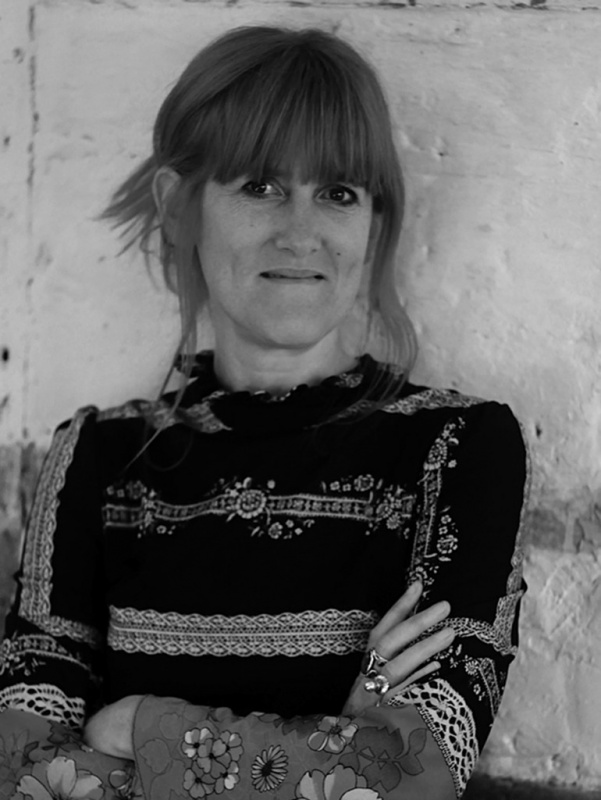 I am pleased to be joined by author, Hannah Vincent today. Her novel, Alarm Girl was released by Myriad Editions in August 2014. Thank you for joining me, Hannah. Can you tell us about Alarm Girl and how the idea originated?
I am pleased to be joined by author, Hannah Vincent today. Her novel, Alarm Girl was released by Myriad Editions in August 2014. Thank you for joining me, Hannah. Can you tell us about Alarm Girl and how the idea originated?
I was travelling in Africa when I came across a newspaper article about a woman who died on the eve of her young daughter’s birthday. The image of a mother preparing for her child’s birthday which she will never see caught my imagination.
It’s a rite-of-passage story, told partly from the point of view of a child who hasn’t been told enough about the circumstances surrounding her mother’s death. To fill in the gaps she makes up her own version of the truth. Set in South Africa, the book’s location is a metaphor for the strange emotional world a child inhabits after the death of a parent.
What’s your writing process like? How much do you plan and do you edit as you go?
I make notes for scenes for a long time and when the time is right (and judging this is crucial, I think) I start ‘joining up the dots’, filling in the gaps in between these scenes. Edit as I go, yes. Writing is rewriting.
You’re also a playwright. How did this contribute toward writing the novel?
My experience of writing plays means I am confident writing dialogue. Also, I visualise scenes, with characters moving about and relating to one another physically.
In a play, the writer only reveals the tip of the iceberg – what characters say to one another and what they do on stage. In prose, the writer has the freedom to show the reader a lot more of the iceberg but writing plays taught me how to be economic and show only what is necessary to the drama.
A Moment With… David Nicholls.
As part of Booktober, one of the books I’ve been reading is Us by David Nicholls. We asked David the following question: if he were only allowed to own three books, which three would he pick? Here are his choices…
The first would be a Dickens – if not a single volume complete works then ‘Bleak House’, his masterpiece, a great, brilliant, rich and endlessly complex novel that’s also endlessly moving.
The story is told partly by the novel’s heroine, Esther Summerson, and partly by an omniscient narrator. Memorable characters include haughty Lady Honoria Dedlock, the menacing lawyer Tulkinghorn, the realistic John Jarndyce, and the childish and disingenuous Harold Skimpole, as well as the imprudent Richard Carstone. At the novel’s centre is long-running litigation Jarndyce and Jarndyce, which has far-reaching consequences for all involved. This case revolves around a testator who apparently made several wills. Dickens’ satirization of the English judicial system is based in part on his own experiences as a law clerk, and in part on his experiences as a litigant seeking to enforce copyright on his earlier books.
Secondly, I’d probably go for Shakespeare’s complete works, including the sonnets.
Finally, Anna Karenina by Leo Tolstoy, simply because I’ve never read it and always pretend that I have.
Blog Tour: Pretending to Dance by Diane Chamberlain
 I’m thrilled to welcome author, Diane Chamberlain and her blog tour to Novel Kicks today. Diane is the best-selling author of The Silent Sister and The Dance Begins. Her new novel, Pretending to Dance was released by Macmillan on 8th October 2015.
I’m thrilled to welcome author, Diane Chamberlain and her blog tour to Novel Kicks today. Diane is the best-selling author of The Silent Sister and The Dance Begins. Her new novel, Pretending to Dance was released by Macmillan on 8th October 2015.
About Pretending to Dance:
When the pretending ends, the lying begins . . . Molly Arnette is good at keeping secrets. As she and her husband try to adopt a baby, she worries that the truth she’s kept hidden about her North Carolina childhood will rise to the surface and destroy not only her chance at adoption, but her marriage as well. Molly ran away from her family twenty years ago after a shocking event left her devastated and distrustful of those she loved. Now, as she tries to find a way to make peace with her past and embrace a healthy future, she discovers that even she doesn’t know the truth of what happened in her family of pretenders.
To celebrate the release of her book, Diane has shared with us the twenty four things she’s learnt when writing a novel. Over to you, Diane…
- Figure out your ending first. Although it may change ten times during the writing, it gives you a target to aim for.
- Don’t stress about formatting. I once asked an editor what font and margin size she preferred. She responded “I wish writers wouldn’t worry about that sort of thing. Just give me a good story.”
- It takes an hour to sign your name 250 times. When my novel Necessary Lies was a Target Bookclub Pick, I had to sign 5000 copies. It took 20 hours and half a bottle of Tylenol. (But so worth it!)
- No matter how brilliant your novel is, several people will still give it one star on Amazon. Get over it.
- Editors are your friends, not your enemies. They want your book to be every bit as extraordinary as you want it to be. Take their suggestions to heart.
Blog Tour: Love You Better by Natalie K Martin
I am very pleased to be welcoming Natalie to Novel Kicks today and her blog tour for her new novel. To celebrate the release of Love You Better, Natalie tells us about her typical writing day. Over to you, Natalie.
Being a bit of a nomad, typical days are few and far between now, let alone a typical writing one, but one thing I always try to incorporate is yoga. It’s a nice way to stay constant with so many physical and environmental changes and I find it really helps to get my mind settled, especially because I tend to have a million things going around in my head at once and it only increases when I’m writing.
After yoga and breakfast, I usually start with checking my social media, emails and then get a cup of tea going. I tend to go back and re-read a couple of the previous chapters to get me back into the groove again, and start from there. My ideal working spot is somewhere quiet, where I can disconnect from the distraction of the internet and plug in my music, but since I’m travelling a lot I tend to end up in buys hub cafe’s. It can sometimes stretch my day out by a few hours with people dropping by to say hello, but it can also be pretty precious, and let’s face it, working in a cafe in Goa, or Cornwall by the beach is hardly a chore! I’ve met lots of people in situations like that who’ve inspired aspects of my characters, or situations.
A Moment With: Ellie Campbell
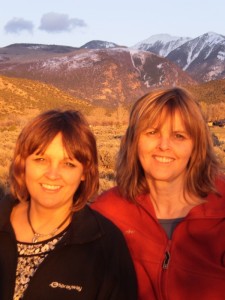
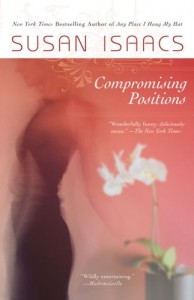 Pam, one half of the sisterly writing duo who writes under the pseudonym Ellie Campbell, talks about her favourite novel. Over to you, Pam.
Pam, one half of the sisterly writing duo who writes under the pseudonym Ellie Campbell, talks about her favourite novel. Over to you, Pam.
My favourite book is Compromising Positions by Susan Isaacs.
I sound like an old record when I talk to people about this novel but it’s always by my bed when I need cheering up. Written by Susan Isaacs it tells the story of Judith Singer – a Long Island ex-journalist now housewife who turns super-sleuth when she finds out that the local dentist has been murdered.
It’s got such fabulous humour all the way through and yet there’s a believable plot. Susan’s writing is phenomenal, witty, full of twists and turns, funny, insightful. You can turn to any page and in seconds you’ll find yourself laughing out loud, or identifying with the lead character. As the book goes on, Judith can’t leave the investigation alone and keeps putting herself in dangerous circumstances.
There’s also a good part of the novel that deals with some very real life issues. Judith’s basically bored in her marriage. Her husband works long hours. Their sex is tepid, predictable and routine. Continue reading
Author Interview: Scott Mariani
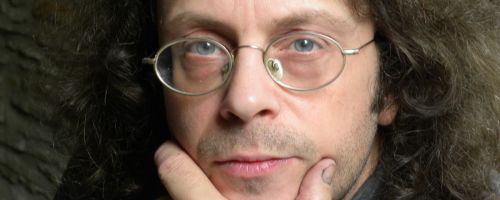 Hi Scott, thank you for joining us. Could you tell us a little about your writing process?
Hi Scott, thank you for joining us. Could you tell us a little about your writing process?
It’s pretty simple, really. I wish I could make it sound exciting and glamorous, but writing is just a job like most others – there’s no special mystique to it. I don’t take long walks on windswept beaches in search of the muse, or anything like that. Six days a week, after breakfast and feeding the dogs and other sundry duties, I go up to my study, coffee in hand. As I climb the stairs I start getting my brain in gear thinking about what I need to do that day. It could be an action scene, or it could be a scene between two characters involving lots of dialogue, or it could be something with a lot of geographical or historical content. In the latter case, I might need to have various reference books or maps around me to refer to. In the former case, I may have nothing at all to rely upon other than my poor overworked imagination. Then I sit down and spend the next few hours trying to do whatever it is I need to do, as effectively as possible. I don’t like to leave the desk until I’m happy with what I’ve set down, which means I might sometimes have a very long working day. Some days are hard, others fly by and I’m able to hit whatever word quota I’ve set myself and stop early to go and attend to the thousand other things I invariably have to do, living out here in the country, like cutting wood or strimming the meadow. Oh, yes, and trying to have a life.
Tesla was a great inventor. What do you wish you’d invented, and why?
He was responsible for, or at least instrumental in pioneering, many technologies that we find essential and take for granted in the modern world (apart from also being, very possibly, a dangerous lunatic). But you don’t necessarily have to be a scientist or an engineer to be an inventor. I think that writers, as designers of stories, are inventors too. I regard what I do as a kind of industrial design job, blending technical and creative abilities in the same way that an automotive designer might come up with the sleek, beautiful form of a new Ferrari or Porsche, or some other end product aimed at appealing to the public. And being a writer, I can’t think of anything I’d rather have invented than a fictional character like Ben Hope, the hero of my books. Readers say they feel they know him like a real person, a friend even, someone they love to share time with, in whose world they love to dwell a while. That’s good enough for me.
A Moment With Hannah Vincent
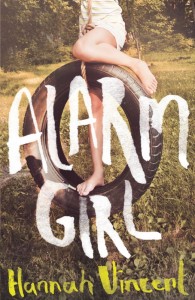
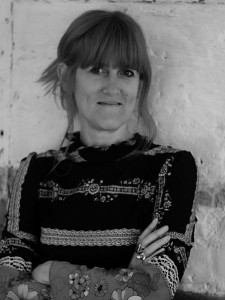 Hannah Vincent, whose debut novel, Alarm Girl was released by Myriad Editions in August last year tells us about her writing room.
Hannah Vincent, whose debut novel, Alarm Girl was released by Myriad Editions in August last year tells us about her writing room.
I write in bed. I could justify this with the excuse that this way I am closer to the dream state and an unconscious mode in which words and feeling flow but the truth is, my bed is comfy, smells nice and my cat likes it when I write there. It is highly un-ergonomic: I lie with my neck crooked on cushions, typing straight onto an ancient laptop with Twiggy the Siamese pinning down one arm.
I once read that humans crave greenery because of our outdoor ancestry. The view from my bedroom window is bland and grey, which is useful in that it’s not a distraction but sometimes I move to the kitchen table to work. Ours is a topsy-turvy house with an upstairs kitchen that is slightly above the level of the garden, so when I look out of the windows I feel as if I am in the trees with the squabbling sparrows and busy blue-tits. Continue reading
A Moment With: Holly Martin
 Holly Martin is the author or The Guestbook, The Sentinel and One Hundred Proposals (as well as One Hundred Christmas Proposals. All published by Carina.) She lives in Bedfordshire in a house with round windows.
Holly Martin is the author or The Guestbook, The Sentinel and One Hundred Proposals (as well as One Hundred Christmas Proposals. All published by Carina.) She lives in Bedfordshire in a house with round windows.
She shares her five writing tips:
Read everything, the good, the bad, the ugly, the amazing. See how things work and how things don’t.
Watch people, listen to what they talk about, how they talk, walk and dress so you can create real life characters
Get people you trust to read it and give you feedback.
Don’t take any criticism or feedback personally
Never, ever give up
Learn more about Holly and her books at her blog: https://hollymartinwriter.wordpress.com
A Moment With: Laura Elliot
The Enduring Memory of a Handmaid’s Tale
I like books that scare me. The ones that keep my heart racing and my finger compulsively turning the pages – or, in in this era of Kindle, twitching on the next-page command. Such books usually conjure up a grim, dystopian world and leave me wondering if they could actually materialise as science advances and technology reaches further and further into our personal lives.
It must be twenty years since I read The Handmaid’s Tale by Margaret Atwood yet I can still bring the details of that story vividly to mind. Briefly, it’s about a totalitarian society that reforms after a nuclear explosion lays most of the United States to waste. The land is contaminated and many of the women who survived the catastrophe have become infertile. In this new, male dominated society these women are sent to clear up the nuclear waste and suffer obvious consequences as a result. The only ones to avoid this fate are the wives of the men in power –these men are known as The Commanders –and the ‘handmaids,’ young women like Offred, the narrator, who have remained fertile and are capable of producing children to populate this new world order.
The self-imposed belief in The Republic of Gilead is that only women are infertile, men remain fertile. This, of course, is untrue so many of these handmaids are unable to conceive and live in dread of being sent to the contaminated wastelands. Their babies, if they do conceive, will belong to The Commanders and their wives.
Blog Tour: Writing Rituals and Inspriations by Rachel Abbott
 Hello Rachel, thank you for joining us. We’re delighted to be part of your blog tour. Your new novel is called Stranger Child. What’s it about and what inspired it?
Hello Rachel, thank you for joining us. We’re delighted to be part of your blog tour. Your new novel is called Stranger Child. What’s it about and what inspired it?
If I had to find one word which sums up what Stranger Child is about, it would have to be revenge – but that nowhere near covers it.
Emma Jacobs met David – now her husband – several years ago, but they lost touch when she went to Australia. When she came back, she was horrified to learn that David’s first wife had been killed in a car accident, and his six-year-old daughter had disappeared from the scene. Now, six years later, Emma and David have put the past behind them and are happily married with a new baby, Ollie.
And then a stranger walks into their lives, and their world falls apart.
Emma discovers things about her own past that shock her, and when she contacts her old friend DCI Tom Douglas for help, their pursuit of the truth sets in motion a series of terrifying events that neither of them could have imagined.
Emotions run high in this book, and each of the main characters has to face a dilemma that nobody should ever have to deal with.
Can you tell us a little about your route to publication?
I am extremely fortunate in having an amazing agent who really looks after me well. I start with an idea of the story and the characters, and I send it to her. She mulls it over and comes back with the things she likes and the things she hates, and somehow or other we knock the outline into shape.
And then I write. I do nothing else – just sit at my desk and write. I love it, but the first draft is always pretty dire. However, it creates the framework, and from there I can go back and work out the detail.
When I’m happy, it goes for first edit – and I know that there will be lots of changes to be made. These are structural – sometimes quite major – but always good. There are a couple of rounds with the editors, and then it goes to line edit where we argue about the detail. Is this sentence necessary? Would we lose anything if we chopped out this paragraph? Then finally the copy edit – when I’m always surprised at the little details that I’ve missed.
We have Advance Review Copies prepared in paperback – this is something we have started with Stranger Child – and my publicists send out copies to anybody who is keen to review the book.
And as an independent author, I also have to think about the marketing, the cover, the blurb – it’s very much a full time job at every stage.
Guy Mankowski on Writing How I Left The National Grid
![]() The writing process for How I Left The National was so distinct from that of my two previous novels, that it was almost like learning to play the keyboard after you’ve been playing guitar. This seems an apt, if somewhat pretentious description, given that this novel follows the story of an eighties post-punk musician, Robert Wardner. Wardner vanishes after a particularly controversial appearance on Top Of The Pops. During this performance he commits a shocking act which, during the more buttoned-up era of 80s Britain, causes enough of an impact that he never recovers.
The writing process for How I Left The National was so distinct from that of my two previous novels, that it was almost like learning to play the keyboard after you’ve been playing guitar. This seems an apt, if somewhat pretentious description, given that this novel follows the story of an eighties post-punk musician, Robert Wardner. Wardner vanishes after a particularly controversial appearance on Top Of The Pops. During this performance he commits a shocking act which, during the more buttoned-up era of 80s Britain, causes enough of an impact that he never recovers.
My first novel, The Intimates, was mostly written over an intense eight-week period when I was 21. I lived and breathed the novel every single day almost in a hallucinogenic way. My second novel, Letters from Yelena, was written over a year and a half, and its writing coincided with a research trip to Russia in which a great deal of information about the world of Russian ballet was absorbed. This novel was set mainly in 80s Manchester, only a few hours away from me.
Somehow, it took over three years.
A Moment With Jacqueline Harvey
 My writing day varies depending on where I am in the world. When I’m at home in Sydney I usually work in my study. It looks out onto two sunny courtyards and across to the upper storey of a beautiful Queen Anne style home. Some days if I’m editing I might walk up to one of the local coffee shops and work there – I like to be around the hum of people depending on what stage of the writing process I’m at.
My writing day varies depending on where I am in the world. When I’m at home in Sydney I usually work in my study. It looks out onto two sunny courtyards and across to the upper storey of a beautiful Queen Anne style home. Some days if I’m editing I might walk up to one of the local coffee shops and work there – I like to be around the hum of people depending on what stage of the writing process I’m at.
I start my day with a skinny latte but try to limit myself to one coffee, so after that I’ll have one or two cups of tea.
I’m usually at my desk by 8am and often work until 6pm. I’ve only been writing full-time for two years and one thing I’ve found problematic is my lack of movement! I have to make sure that I get up and walk every half hour or so. To that end I investigated a brilliant standing desk arrangement last year. It has a large flexible arm to hold the computer screen and keyboard so you can adjust it to a sitting position and then push it up so you can stand. The negative impact of sitting for long periods is frightening, apart from the inevitable weight gain, so I hope the standing desk will work for me.
Carla Curuso’s Five Writing Tips
 Carla Curuso lives in Adelaide and as well as being the author of Catch of the Day, Mommy Blogger and Unlucky for Some, she is also involved in the Adelaide Chick-Lit Book Club and the Life, Love & Laugh blog. Her novel, A Pretty Mess is available on Amazon and Pretty Famous will be available on 1st February 2015.
Carla Curuso lives in Adelaide and as well as being the author of Catch of the Day, Mommy Blogger and Unlucky for Some, she is also involved in the Adelaide Chick-Lit Book Club and the Life, Love & Laugh blog. Her novel, A Pretty Mess is available on Amazon and Pretty Famous will be available on 1st February 2015.
Carla shares her five writing tips…
1. Don’t follow trends.
2. Be yourself and find your own unique voice.
3. Write every day – it’s the best way to keep ‘inside the head’ of a story/character and stay excited by it. Even if you only write 300-600 words a day, it’s amazing how the word count builds up overtime. I find I can only write in a few-hour blocks anyway, then I’m not inspired anymore! It’s a marathon not a sprint. Plus, you’ll have a better story if you have ‘creative thinking time’ in between, pushing the novel in different directions you might not have thought of earlier.
4. Write the kind of book you’d feel excited to pick up from a shelf. (Sophie Kinsella said something like that and it’s so true!)
5. Write your ‘own’ story. Your life experience might seem boring to you, as compared to, say, Gwyneth Paltrow’s life, but it’s actually a goldmine. Nobody has experienced exactly the same kind of things as you have – the people you’ve met, the places you’ve been, the emotions you’ve felt. Draw on it and you’ll write authentically and keep people captivated!
Read our interview with Carla.
Find Carla at www.carlacaruso.com.au and information about her latest works at http://www.harpercollins.com.au
The Adelaide Chick-Lit Book Club is on Facebook and the Life, Love and Laughs blog can be found at http://www.lifeluvnlaughs.blogspot.com.au/
A Moment With…Rob Pateman
Author, Rob Pateman is with us today (day 24 of NaNoWriMo,) to talk about creating believeable characters.
The grit in the oyster cell makes the pearl – and it’s the friction between the antagonist and the protagonist that lies at the heart of a good book.
The conflict between them drives the narrative, so establish early on what’s at stake for both characters. It could be life or death, financial ruin, the moral high ground, the end of civilisation as we know it, property, family happiness or something more tenuous, like love or truth.
With the basic tension set up, your characters’ personalities, attitudes, beliefs, and life circumstances will begin to follow. One might be demure, conventional, social and funny. The other more calculating, secretive and moody. And the social and funny one might not necessarily be your protagonist!
People aren’t all black and white – so your characters can’t be either. There has to be some light and shade to make them believable and make your readers more likely to engage with them.
Rob writes under the name, R.S Pateman and is the author of The Second Life of Amy Archer. His new book, The Prophecy of Bees was released earlier this month (both published by Orion.) For more information on Rob and his novels, visit his website: http://rspateman.com/
A Moment With…Kelly Florentia
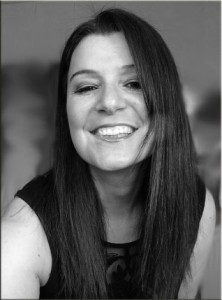 Kelly Florentia is the second author to join us today for our collection of posts to coincide with NaNoWriMo. Kelly joins us to talk about short stories.
Kelly Florentia is the second author to join us today for our collection of posts to coincide with NaNoWriMo. Kelly joins us to talk about short stories.
I love reading short stories. There’s something quite gratifying about a sharp, tight tale with a satisfying or clever ending. Although not as widely read as novels, short stories are a lot more prominent than some people may think. Breakfast at Tiffany’s is a film adaptation of Truman Capote’s novella (1958). And Alfred Hitchcock’s 1963 classic The Birds was inspired by Daphne Du Maurier’s short story of the same name taken from her anthology The Apple Tree (1952). Oscar Wilde, one of my favourite authors of all time, mainly wrote plays and short stories.
Producing fine, short literature requires great skill and tenacity. Unlike a novel, you only have a few hundred or a few thousand words to create a strong, believable plot with convincing characters and a fulfilling conclusion. Your aim is to engage readers within the first sentence, keep them connected, and not let them down in the last paragraph with a poor or predictable finish. Most of the stories I write have a twist or surprise ending simply because that’s what I like to read, but not all short stories need to take this form. Stories can be humorous, moving, romantic, inspirational or chilling. But, primarily, they must be entertaining.
Personally, the most challenging aspect of short story writing is coming up with new ideas. Magazine editors are always on the lookout for fresh material, and the last thing you want is for your reader to find your story predictable or worn. So when ideas arise I jot them down and work on them later. Ideas are everywhere. A comment someone makes, a newspaper article, a conversation, something I see on T.V. or read on the internet.
A Moment With…Christina Jones
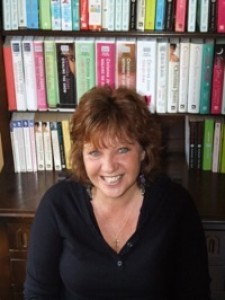 In our second post today to coincide with National Novel Writing Month, we talk to author, Christina Jones about her route to publication and how all started with a boy called Tony…
In our second post today to coincide with National Novel Writing Month, we talk to author, Christina Jones about her route to publication and how all started with a boy called Tony…
My route to publication was – to quote every contestant X-Factor has ever had – a bit of a roller-coaster… And a lifelong roller-coaster at that… I’d always enjoyed writing stories and making things up, and I had my first short story published when I was 14 (in a teenage magazine – remember them?). I wrote about Tony from the chip shop who I was madly in love with and who ignored me and went out with my best friend instead. I poured every bit of teenage heartbroken angst into that story I can tell you! I sent it to the magazine without ever thinking it’d be published – but they loved it, bought it and paid what was a fortune to me then, and it opened up a nice little niche for me – and I carried on writing short stories, serials, articles (I became the pop correspondent for “Jackie” – was the envy of all my friends!), and anything else they’d pay me for (!) for the teenage mags while I was still at school, and then did the same for the women’s magazines for years. It was my hobby – and I was earning enough pocket money from it to have a couple of nice holidays each year – and that was about as far as I ever imagined my writing career was going.
A Moment With…Rob Sinclair
 We are now into the last week of National Novel Writing Month. I can’t believe we are almost at the end already. If you’re having a month like me, it’s going to be a marathon to the end or if you’re near the end or have finished already, I applaud you. Today, we chat with author Rob Sinclair about the challenges of writing his debut novel.
We are now into the last week of National Novel Writing Month. I can’t believe we are almost at the end already. If you’re having a month like me, it’s going to be a marathon to the end or if you’re near the end or have finished already, I applaud you. Today, we chat with author Rob Sinclair about the challenges of writing his debut novel.
For Dance with the Enemy, the biggest challenge for me was that I when I first started writing it I hadn’t really learned the craft properly. Writing was something entirely new to me. I’d never been on any courses or anything like that. I’m certainly no expert now even, with only three books under my belt, but I know I’ve learnt a lot on the way already. So Dance with the Enemy was a really steep learning curve for me – there were things I tried which didn’t work, mistakes I made in terms of my approach to writing including style, plotting, structure etc. All those have been ironed out over time but it meant that Dance with the Enemy was really quite a belaboured project by the end. Continue reading
A Moment With…Hannah Beckerman
 We are twenty days into National Novel Writing Month. How is everyone getting on? Today, we have the author of The Dead Wife’s Handbook, Hannah Beckerman who is sharing her five writing tips…
We are twenty days into National Novel Writing Month. How is everyone getting on? Today, we have the author of The Dead Wife’s Handbook, Hannah Beckerman who is sharing her five writing tips…
1. Write a lot. That’s not meant to sound glib. Writing’s like a game of pass the parcel: you have to wade through all the boring, tedious layers of wrapping on the outside before you get to the prize in the middle. And with writing, it can take an inordinate amount of time to reach that prize.
2. Be brave. I don’t just mean in terms of what you write (although obviously that too). But allow other people you trust to read and comment on what you’ve written. It’s scary putting yourself out there but it can be invaluable in helping your work develop.
3. Suit yourself. Some people will insist that you have to write in a particular place or according to a particular routine. But writing’s one of the most personal things you can do and you need to find what works for you.
4. Be disciplined. Wherever you choose to work on your writing, don’t forget that it is work. Lots of people ask me if I wait for inspiration to write. The answer is a resounding no. You have to write through the days when you’re not in the mood and when you know what you’re writing will end up in the virtual (or even the real) bin. But that’s how you get to the days when you write something that you know just might be okay. Sometimes, on really good days, something that’s even better than okay.
A Moment With…Nicci Gerrard
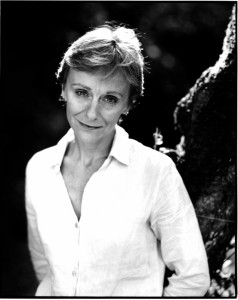 Nicci Gerrard is one half of the writing team, Nicci French. On day nineteen of National Novel Writing Month, Nicci talks to us about the challenges and advantages of writing as part of a team
Nicci Gerrard is one half of the writing team, Nicci French. On day nineteen of National Novel Writing Month, Nicci talks to us about the challenges and advantages of writing as part of a team
Writing can be solitary and also rather frightening – and sometimes it can feel like going mad (and I write in an attic). Writing with Sean is less solitary and less frightening, and there’s something rather exhilarating about going mad with another person – folie a deux. In many ways the actual process of writing isn’t so different from when I write solo novels, because Sean and I actually never write together (we did try once, at the end of our first book, The Memory Game, in an act of symbolic unity – but it was dreadful: we took about an hour to come up with one drab sentence, and squabbled throughout).
There are things that are straightforwardly lovely and fun – like the planning, when we go for long walks, or sit over coffee and tea and wine, and bounce ideas off each other without fear of being ridiculous. But usually the advantages are also the challenges – what’s good about writing together can also be what’s hard. We have to trust each other and to be vulnerable in front of each other. We have to allow the other to edit an even to erase our precious words. And there’s nowhere to hide – most relationships thrive with areas of separation, with boundaries .
A Moment With…Cathy Kelly
 Earlier, we heard from author, Deborah Lawrenson about how she deals with the mid-book slump and now we catch up with Cathy Kelly to see how she deals with that dreaded mid-book stall…
Earlier, we heard from author, Deborah Lawrenson about how she deals with the mid-book slump and now we catch up with Cathy Kelly to see how she deals with that dreaded mid-book stall…
I keep writing and tell myself I am an idiot about a hundred times. It’s such a dreadful thing to go through and I go through many of them with each book, and I force myself to stay at the computer, when really, a good walk helps. What I’ve written still looks dreadful when I come back but I am somehow calmed!
Cathy Kelly is the best-selling author of The Honey Queen, Just Between Us and The House on Willow Street. Her latest novel, It Started With Paris was released by Orion in October 2014. Read our interview with her by clicking here.
A Moment With: Nell Dixon.
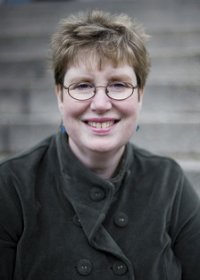 Nell is a member of the Romantic Novelists’ Association. Her books include Christmas Ever After, The New Bay Series and Radio Gaga. Today, Nell shares her five tips for new writers.
Nell is a member of the Romantic Novelists’ Association. Her books include Christmas Ever After, The New Bay Series and Radio Gaga. Today, Nell shares her five tips for new writers.
Read lots.
Keep writing.
Write what you love.
Don’t be scared to reach out to other writers.
Never be scared to edit.
For more information about Nell and her books, visit her website: www.nelldixon.com
Follow Nell on Twitter.
For more information on the Romantic Novelists’ Association, visit their website: www.rna-uk.org
A Moment With Carole Matthews
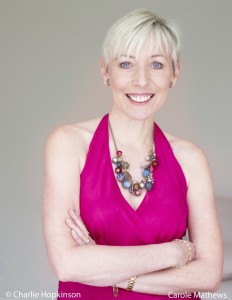 Carole Matthews is the best-selling author whose books include Summer Daydreams (which was nominated for the Melissa Nathan award,) and A Place to Call Home (which was released earlier this year.)
Carole Matthews is the best-selling author whose books include Summer Daydreams (which was nominated for the Melissa Nathan award,) and A Place to Call Home (which was released earlier this year.)
Today, Carole shares her five writing tips…
1. Write every day.
2. Write what’s in your heart.
3. Don’t follow the latest trend. By the time you’ve written your book, it will have passed.
4. Don’t make excuses about why you can’t find time to write.
5. Don’t give up. Determination is the key. And a great story, of course.
Carole can be found at her website, www.carolematthews.com
A Moment With…Paige Toon
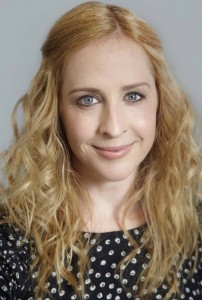 Paige Toon worked at various magazines before becoming Reviews Editor at Heat Magazine. Her novels include The Longest Holiday and One Perfect Summer. Her new book, Thirteen Weddings was released in May. Today, Paige shares her five writing tips with us.
Paige Toon worked at various magazines before becoming Reviews Editor at Heat Magazine. Her novels include The Longest Holiday and One Perfect Summer. Her new book, Thirteen Weddings was released in May. Today, Paige shares her five writing tips with us.
1. Write what you want to, not what you think you should.
2. If you’re stuck on a tricky scene, move on to something you want to write about and come back later.
3. Make sure your grammar and spelling is perfect before you even think about sending your book off to an agent. Ask someone you trust to check it over.
4. Consult the Writers & Artists’ Yearbook to find a few agents that are right for you – there are tips inside to help you draft a letter.
5. Don’t feel too disheartened about rejection – you can always self-publish your book and spread the word that way. It might just be that what you have written is not quite right for an agent at that particular time, but that’s not to say you won’t ever get a book deal. Don’t give up!
You can find out more about Paige by visiting www.paigetoon.com
Follow Paige on Twitter: @PaigeToonAuthor
A Moment With Marianne Kavanagh
 Marianne Kavanagh is the author of For Once In My Life. She shares her writing tips for new writers.
Marianne Kavanagh is the author of For Once In My Life. She shares her writing tips for new writers.
- Read a lot, and think about how other people write.
- Find a writers’ organisation that suits you. I went along to seminars and events organised by Spread the Word in London, which I really recommend.
- Find a good plot. Most novels tell a story. It’s not enough just to write well.
- Remember that writing a novel is 1% inspiration and 99% perspiration.
- Don’t give up.
Buy For Once In My Life from Amazon.
For Once In My Life is published by Text Publishing, 29th May 2014.
A Moment With Lilian Carmine
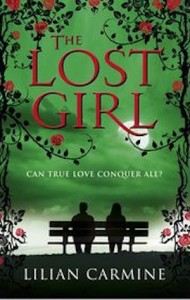 Lilian Carmine is the author of The Lost Boys. The second in that series, The Lost Girl, was recently released by Ebury and is available in paperback and e-book.
Lilian Carmine is the author of The Lost Boys. The second in that series, The Lost Girl, was recently released by Ebury and is available in paperback and e-book.
Lilian, do you have any writing rituals? Do you prefer silence when you work?
I must have music to inspire me when I’m writing and a lot of coffee too. Those are the two essentials I must have before I begin to write anything.
What’s your best writing moment so far?
I love Tristan’s letter in The Lost Boys, it was a special emotional moment for me. And the ‘Without a word’ chapter in The Lost Girl was also very special to write.
A Moment With Talli Roland
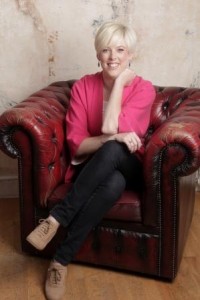 From My Head to the Page: Creating Main Characters.
From My Head to the Page: Creating Main Characters.
Every book is different, but when it came to developing the main character for THE NO-KIDS CLUB, the ideas just flowed. Clare was there, waiting inside my head, already fully formed and biding her time under I finally sat down at the computer and started typing.
As with many of my characters, Clare contains a little piece of me. Like Clare, I never wanted to have children – for many of the reasons she outlines in the novel (although it’s fair to say I didn’t feel quite so vehemently about it!). I’d watched many of my friends become parents, marveled at how their lives changed, and wondered if having a baby really was worth all that upheaval. When Clare spilled out onto the page, a lot of my own sentiments did, too.
Of course, it’s never that easy. In any story, characters need to inhabit a world beyond their creator. I needed to figure out why Clare felt so strongly about not having kids, and how her character would transform and grow over the course of the novel. With each book, I ask myself what the main character wants in the beginning, who will stand in their way, and how their desires will change by the end. From there, I come up with ideas and scenarios that will either hinder or help the character’s development. I won’t give away the plot here, but let’s just say Clare’s notion of the life she thinks she wants is severely challenged!
A Moment With Janey Lewis
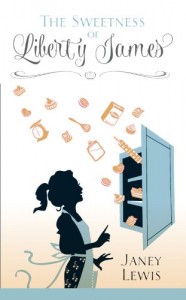 Janey is the author of The Sweetness of Liberty James, released by The Book Guild in March 2014. Her book is about Liberty deciding to open up her own patisserie after going through a traumatic life changing event.
Janey is the author of The Sweetness of Liberty James, released by The Book Guild in March 2014. Her book is about Liberty deciding to open up her own patisserie after going through a traumatic life changing event.
Today, Janey shares her five writing tips.
Only write for yourself.
Write about something you are passionate about. Books, like food, show if you put love into them.
Only write if you feel like it.
Read.
Read more.
The Sweetness of Liberty James is available to buy in hardback and e-book.
A Moment With Renita D’Silva
Renita D’Silva’s novel, Monsoon Memories was released in 2013 and her second novel, The Forgotten Daughter was recently released by Bookouture. Renita talks about the books that she’s read that have made an impact on her.
Oh there are so many. I am reading constantly and I try and read as variedly as I can. While writing ‘MonsoonMemories’, some of the books that made a huge impact were Julie Myerson’s ‘Something might happen’,Chimamanda Ngosi Adichie’s ‘Purple Hibiscus’, MaggieO’Farrell’s ‘The Vanishing Act of Esme Lennox’ and Rose Tremain’s ‘The Road Home’.
While writing ‘The Forgotten Daughter’ I read Margaret Atwood’s ‘The Blind Assassin’ and was blown away by the sheer beauty of her prose.
The book that made a big impact on me growing up was Arundhati Roy’s ‘The God of Small Things’. I obsessed over it – the plot, her prose, her beautifully evocative descriptions, Continue reading
Novel Kicks Chats With William Thacker
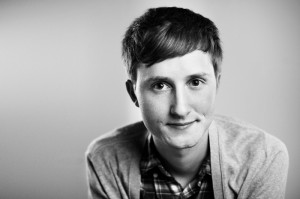 Charm Offensive was published by Legend Press in March 2014.
Charm Offensive was published by Legend Press in March 2014.
William is an author and scriptwriter and this book is his debut novel. We chat with him about Charm Offensive, his writing rituals and his favourite word.
Can you tell us about Charm Offensive?
It’s a contemporary novel about a retired politician’s recovery from a scandal. It contains tragedy and comedy – two of my favourite bedfellows.
Which authors do you admire?
I admire many of the novelists and playwrights who are closely associated with the 1930s and 1940s – the likes of Steinbeck, Orwell and the neglected-until-recently Patrick Hamilton. I admire the moral integrity to their works which came amid economic depression and war. They had soul as well as style. I once wrote my dissertation on the great American playwrights – Arthur Miller, Eugene O’Neill and Tennessee Williams – for the same reasons.
A Moment With…Michelle Scott
 The author of the Lilith Straight series, talks about writing urban fantasy.
The author of the Lilith Straight series, talks about writing urban fantasy.
I’ve always liked books that take me away from the humdrum of everyday life and into a world of monsters and heroes, demons and angels. My first introduction to these books came in the form of my mother’s old copy of Grimm’s Fairytales. Mind you, these weren’t the sanitized, Disney versions, but the raw, scary tales. There was a murder in nearly every story. Fingers were cut off. Eyes gouged out. People were eaten…
Fun times.
Yes, I was drawn to the scariness of the stories as much as I was the incredible world of fairies and giants and talking animals. I liked to think that one day I might run across something as rare and wonderful as a magic horse or a house made of sweets. I guess, in some ways, I’m still waiting for that day.
As I matured, so did my tastes. As a teenager, I fell in love with Anne Rice’s vampire novels. Instead of dreaming about knights and princes, I started dreaming about the vampire Lestat and his friend Louis. After those books, it was Sunshine by Robin McKinley. And then Mercy Thompson and Sookie Stackhouse.
Years have passed since then, but I’m still as into the supernatural now as I ever was. Of course, I’ve upgraded to werewolves and vampires and demons, but still. The same principles apply. Scary is good and the fantastic is awesome.
A Moment With CL Taylor – Five Writing Tips
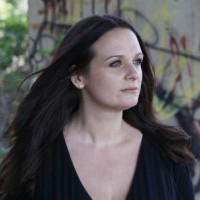 CL Taylor’s novel, The Accident, was released in April by Harper Collins.
CL Taylor’s novel, The Accident, was released in April by Harper Collins.
Today, she shares with us her five tips for new writers…
1.Don’t write what you know, write about something you feel passionately about. When I wrote THE ACCIDENT I wanted to explore how an abusive relationship continues to affect the victim long after it ends. I think readers can sense when the writer feels passionately about a theme and it makes the novel a more powerful, compelling read.
2.Wait for the voice of the character to appear in your head before you write a word. It makes writing your novel a million times easier. Don’t force it, just wait. She or he will speak to you when you least expect it, just make sure you write down whatever they say as quickly as you can.
3.Don’t compare yourself to other writers or assume that they have it easy or are brimming with confidence. Published authors blog and tweet about their successes and keep their failures to themselves. I know so many authors who’ve had books rejected by their agents and their editors, even after they’ve been published to critical acclaim. EVERYONE, even multi-published and award-winning authors, feel insecure about their writing ability at some time and we all reach a certain point when writing a book where we’re utterly convinced that it’s rubbish and we should ditch it and start something new. The secret is to keep writing through those insecure periods (and stock up on chocolate and wine).
A Moment With Pippa Croft
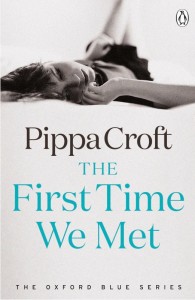 Pippa Croft is the author of The First Time We Met.
Pippa Croft is the author of The First Time We Met.
What was that first moment that you realized you wanted to become a writer?
I can tell you exactly. I was watching a BBC period drama called North & South in November 2004. Although I’d always worked as a journalist and copywriter, I’d shied away from writing fiction. I was worried that I’d be rubbish at it and I didn’t have any inspiration. North & South suddenly – and out of blue – inspired me to have a go at writing some fan fiction, which was quite a new thing back then. I shared my story on an Internet forum and haven’t stopped writing since. In my role as a journalist, I also actually got to do a phone interview with the sexy star of North & South, Richard Armitage.
What authors, books, or ideas have influenced you most?
Jane Austen, definitely, Continue reading
Two nations, divided by a common book cover
By Michele Gorman.
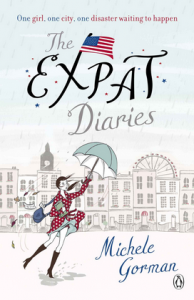 I’ll never forget the day I first saw the cover for my debut novel back in early 2010. My editor emailed it to me while I was waiting to meet with my agent. I was sitting in a beautiful café on Piccadilly on a sunny February day (a rare thing in London). Excitement, tinged with nerves, fizzed when I opened that image. For months I’d wondered how Penguin would package the book that I’d spent years writing and rewriting until it was as perfect as could be. Would they take the same care over the cover? Would it reflect the story, about a young American woman named Hannah who moves to London only to find that she’s completely ill-equipped to live there?
I’ll never forget the day I first saw the cover for my debut novel back in early 2010. My editor emailed it to me while I was waiting to meet with my agent. I was sitting in a beautiful café on Piccadilly on a sunny February day (a rare thing in London). Excitement, tinged with nerves, fizzed when I opened that image. For months I’d wondered how Penguin would package the book that I’d spent years writing and rewriting until it was as perfect as could be. Would they take the same care over the cover? Would it reflect the story, about a young American woman named Hannah who moves to London only to find that she’s completely ill-equipped to live there?
It did, and I loved it. The cover fit perfectly with the story and perfectly with the romantic comedy genre in the UK – a pretty illustrated pastel cover. It reflected Hannah’s uncertainty, swept along and buffeted by London.
Then, about a month later, my agent took me out for dinner. “You’re not going to like what I have to tell you,” she said, pushing the cake we were sharing in my direction. “Penguin wants to change the title. To Single in the City. They feel that it has broader appeal.”
That explained why she’d been plying me with wine for two hours.
My Advice: Anna Stothard
Anna Stothard offers her five writing tips.
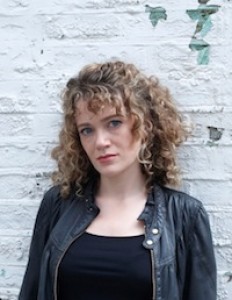 I often imagine I’m dying. It stops me from Googling pointless things.
I often imagine I’m dying. It stops me from Googling pointless things.
When you’ve finished a first draft, put it away for a month before showing any one.
Read your book out loud, or at least some of it. How things sound, the rhythms, make a difference.
You can’t please everyone and shouldn’t aim to. Write for yourself, but ideally with humility (don’t be boring!).
Keep a notebook and record overheard Continue reading
Portia MacIntosh
My Constantly Changing Writing Space.
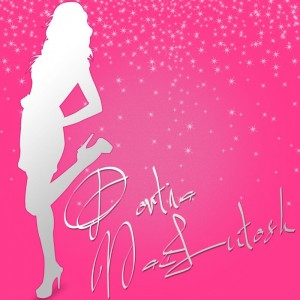 I started writing novels as a way to tell the world about my experiences touring with bands – something I have been doing since I was fifteen-years-old, and I’m in my mid twenties now. I wanted to tell my stories anonymously, so using them to inspire works of fiction seemed like the best way to do it.
I started writing novels as a way to tell the world about my experiences touring with bands – something I have been doing since I was fifteen-years-old, and I’m in my mid twenties now. I wanted to tell my stories anonymously, so using them to inspire works of fiction seemed like the best way to do it.
The thing is, when I started working on Between a Rockstar and a Hard Place and How Not to be Starstruck, I had no idea that one day a publisher like Carina would pick them up, so I had to keep up the day job, and I had to keep myself in material. This meant touring with more bands (I’m not complaining, I love it) and trying to fit writing in around that, which was tricky at first.
When Novel Kicks asked me about my writing space, I realised that I didn’t have one. I hadn’t give it much thought, but soon realised that most people have their desk or place where they write and that’s where the magic happens – one thing I can say for certain, I haven’t ever written at a desk.
Lynne North
Lynne North’s Best Writing Moment.
That has to be having my first book accepted by Ghostly Publishing, and having it launched at Earl’s Court Book Fair in London. You don’t get much bigger than that for a launch, do you?
Lynne North is the author of two children’s books, Caution: Witch in Progress’ and ‘Zac’s Destiny. For more information on Lynne and her books, visit her website.
